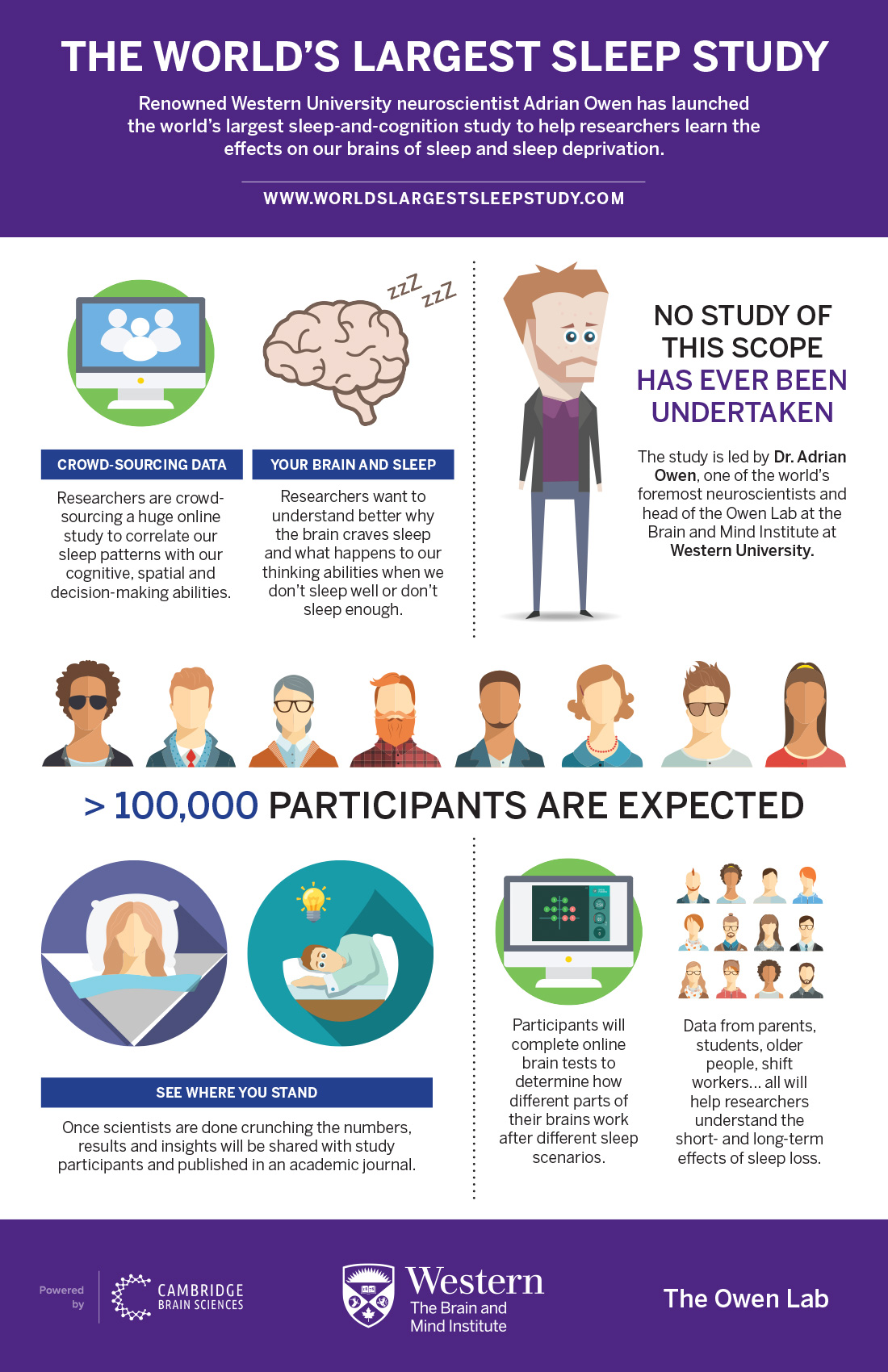Exactly how much sleep do you need to function at your best? How does sleep deprivation impact your ability to think and problem solve? Does age matter? What about people who chronically sleep at odd hours, like shift workers and new parents?
Researchers know surprisingly little about the answers to these questions.
Neuroscientist Adrian Owen, professor at Western University’s Brain and Mind Institute and Koerner fellow at CIFAR, wants to better understand how sleep impacts cognition. And to get there, he aims to recruit over 100,000 volunteers into what he believes will be the world’s largest sleep study.
With the power of the internet to reach people across the globe, Owen hopes to get a large and diverse group of participants, providing insight at an unprecedented scale. Anyone with 30 minutes to spare for three days in a row can sign up to participate here.
Professor Adrian Owen talks about his ongoing sleep study and the questions it will address. Credit: Western University.
Owen, also the Chief Scientific Officer at Cambridge Brain Sciences, will be using their scientifically validated brain games to test brain function. Volunteers will track and record their sleep patterns in the study’s surveys, all while playing the brain games daily. The entire study will happen online.
At the end of the three days, participants will be able to see how their sleep patterns and brain function stack up compared to the other volunteers to date. Once the final data analysis is complete, Owen and his team will also make the full study results public.
Canadians are finding it difficult to get enough sleep. The recommended amount of sleep is eight hours a night. But according to a 2017 report by the Rand Corporation, one in five Canadians get six to seven hours of sleep a night, and another 6 percent consistently sleep fewer than six hours a night.
This lack of sleep can affect us in many ways, both large and small, and both short-term and long-term. Sleepless nights can destroy productivity, and impact judgement and reaction times to the point where drivers are just as impaired as they would be driving drunk. In the long-term, lack of sleep is linked to medical conditions like heart disease and obesity.
“We have the opportunity in this study to learn far more about the brain’s response to sleep than we have ever had before,” says Owen. “And what we learn ultimately has the potential to change how millions of people go about their daily lives.”
Your brain and sleep: sign up online to see how you stack up against other study volunteers. Credit: Western University.









































